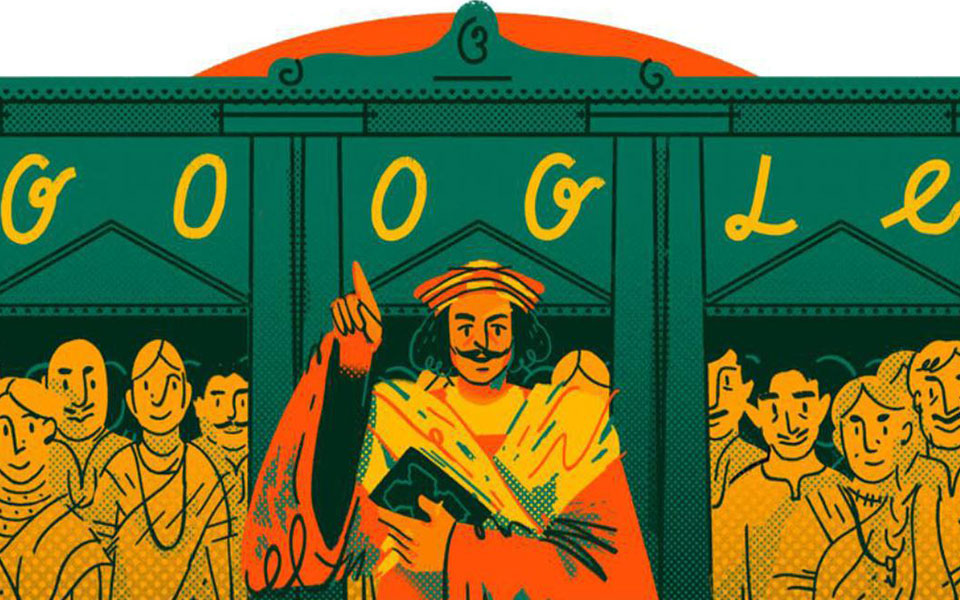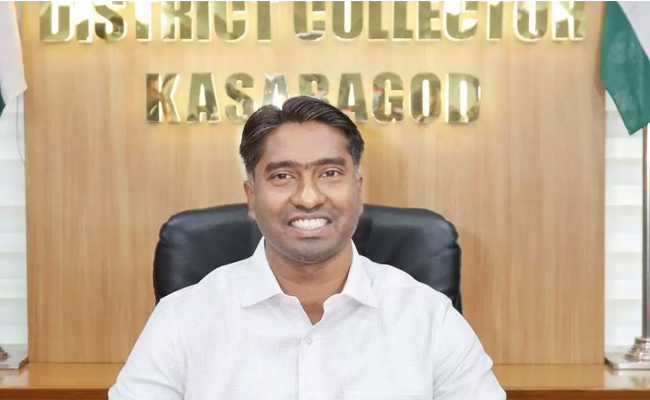New Delhi, May 22: Google on Tuesday celebrated the 246th birth anniversary of renowned social reformer Raja Ram Mohan Roy recognised as the "Father of the Indian Renaissance", who paved the way for a modern India.
Roy was a non-conformist to many a tradition he was born into on this day in 1772, in Radhanagar village in Murshidabad district of West Bengal.
Although born into a Hindu Brahmin family, where his father Ramkanto Roy, was a Vaishnavite, Roy at a young age left home, shunned orthodox rituals and idol worship and became a staunch supporter of monotheism.
Following his differences with his father, Roy went on a journey that took him far from his roots. He travelled extensively including in Tibet and the Himalayas.
He studied Persian and Arabic along with Sanskrit, which influenced his thinking about God. He read Upanishads, Vedas and the Quran and translated a lot of the scriptures into English.
When he returned home, his parents married him off in a bid to change his outlook. But Roy continued to explore the depths of Hinduism only to highlight its hypocrisy.
After his father's death in 1803 he moved to Murshidabad, where he published his first book Tuhfat-ul-Muwahhidin (A Gift to Monotheism).
Roy took a keen interest in European politics and followed the course of the French Revolution.
In 1814, he settled in Calcutta, and the following year he founded the Atmiya Sabha. In 1828, he established the Brahmo Samaj, which is considered to be one of India's first socio-religious reform movements.
However, his most significant contribution as a social engineer was towards women's rights. Nearly 200 years ago, when evils like -- Sati -- plagued the society, Roy played a critical role to bring about a change.
He opposed the regressive practice that forced a widow to immolate herself on husband's pyre.
The doodle on Roy, created by Beena Mistry, a designer based out of Toronto, shows Roy speaking at a public meeting with his detractors in the background. There is also the presence of a woman among the audience, this is at a time when the purdah system was rigidly followed.
He campaigned for equal rights for women, including the right to remarry and the right to hold property.
In 1830, he travelled to the UK as the Mughal Empire's envoy to ensure that Lord William Bentinck's law banning the practice of Sati was not overturned.
Roy was also one of the pioneers of Indian journalism. He published several journals in Bengali, Persian, Hindi and English to propagate social reforms.
Bengali weekly Samvad Kaumudi was the most important journal that he published. The Atmiya Sabha published an English weekly called the Bengal Gazette and a Persian newspaper called Miratul-Akbar.
Roy died in a village near Bristol in England on September 26, 1833 of meningitis, and was buried there.
Let the Truth be known. If you read VB and like VB, please be a VB Supporter and Help us deliver the Truth to one and all.
Mangaluru: A 57-year-old man has allegedly been cheated of Rs 10.55 lakh by online fraudsters who lured him into investing in a so-called digital gold trading platform through Instagram, Deccan Herald reported on Tuesday.
According to the complaint, the victim was browsing Instagram at his residence on November 12, 2025, when he received a message from an account named “Suhani Patel.” The accused initiated a friendly conversation and later persuaded him to invest in the “digital gold market,” promising high returns.
The accused subsequently shared a mobile number and sent a link via WhatsApp, asking the complainant to install an application called “Kanak Daam Exchange.” Following the instructions, the victim downloaded the app and registered.
ALSO READ: Ex-Union Minister K P Unnikrishnan dies at 89
The accused told the complainant that all transactions would be handled through the app’s customer service. Following their instructions, the complainant contacted the customer service through the app and sent a message requesting US dollars in exchange for Indian rupees. He was then directed to transfer money to specific bank accounts provided by the accused.
Trusting the claims, the complainant transferred Rs 1,50,000, Rs 3,45,000 and Rs 5,60,000 in multiple transactions, amounting to a total of Rs 10,55,000.
Subsequently, the app displayed that his total investment had grown to Rs 60 lakh. However, when he attempted to withdraw the amount due to personal financial needs, the request was denied. On contacting customer service, he was informed that he would have to pay 30 per cent of the total amount as “tax” before any withdrawal could be processed.
Growing suspicious, the complainant reportedly consulted officials at Canara Bank, who advised him that it was a fraud and warned him not to transfer any more money. When he confronted the accused, the amount displayed in the app was allegedly reduced to zero, and he was blocked from further communication.
Despite further attempts to contact “Suhani Patel,” the accused allegedly continued to assure him that the lost money would be returned, before eventually blocking him.
The complainant stated that he was cheated between November 12, 2025 and February 27, 2026, and has urged police to take action against the fraudsters.
A case has been registered, and further investigation is underway.





